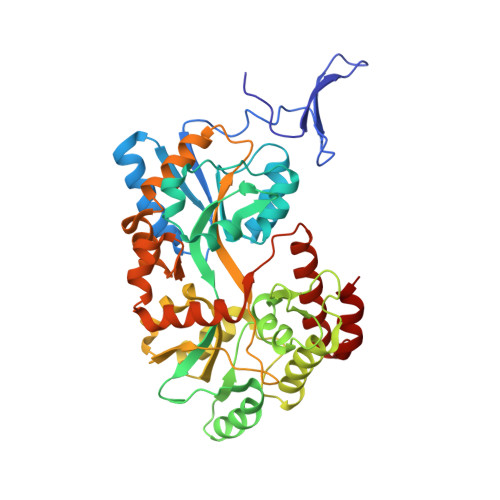Structural studies of the N-terminal fragments of the WW domain: Insights into co-translational folding of a beta-sheet protein
Hanazono, Y., Takeda, K., Miki, K.(2016) Sci Rep 6: 34654-34654
- PubMed: 27698466
- DOI: https://doi.org/10.1038/srep34654
- Primary Citation of Related Structures:
5B3W, 5B3X, 5B3Y, 5B3Z, 5BMY - PubMed Abstract:
Nascent proteins fold co-translationally because the folding speed and folding pathways are limited by the rate of ribosome biosynthesis in the living cell. In addition, though full-length proteins can fold all their residues during the folding process, nascent proteins initially fold only with the N-terminal residues. However, the transient structure and the co-translational folding pathway are not well understood. Here we report the atomic structures of a series of N-terminal fragments of the WW domain with increasing amino acid length. Unexpectedly, the structures indicate that the intermediate-length fragments take helical conformations even though the full-length protein has no helical regions. The circular dichroism spectra and theoretical calculations also support the crystallographic results. This suggests that the short-range interactions are more decisive in the structure formation than the long-range interactions for short nascent proteins. In the course of the peptide extension, the helical structure change to the structure mediated by the long-range interactions at a particular polypeptide length. Our results will provide unique information for elucidating the nature of co-translational folding.
Organizational Affiliation:
Department of Chemistry, Graduate School of Science, Kyoto University, Sakyo-ku, Kyoto, 606-8502, Japan.
















